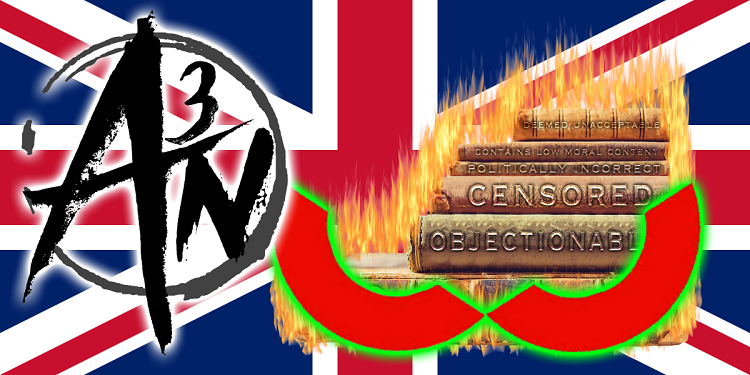
Centralization Fail
For those of you who have been following what I’ve been writing on this site, you know how much I hate centralisation. I think it’s the enemy of both principle and progress, and I think it holds people back and encourages statism. That’s why when I recommend alternatives to mainstream social media applications like Facebook and Twitter, I don’t recommend a centralized option. At some point, I’ll be going over alternatives to video sharing platform sites in the same way that I went over alternatives to Facebook. I’ll also be going over alternatives to Twitter at some point. Additionally, I will be making an update post about some of the platforms I’ve talked about, as there’s some new information there. But a good example of what I’ve been talking about when I decry centralisation is in the news now, because popular YouTube alternative Bitchute has now begun censoring “extremist content” en masse.
That’s right. In response to a hit piece disguised as a study by an organization called “Hope Not Hate”, the people who run Bitchute got spooked and deleted thousands of videos at once to appease the gods that did the “study”. The report starts:
“Over recent months, we have become increasingly alarmed by the frequency with which we
are encountering violent, racist and harmful videos posted on social media that are hosted
on the BitChute video-sharing platform. Almost every recent Facebook post we have seen
promoting Nazi propaganda films were links to BitChute, while wildly misleading and harmful
conspiracy theory documentaries that were quickly banned by YouTube, such as the Fall of
the Cabal, Plandemic and Out of Shadows have gone on to rack up millions of views on their
BitChute uploads.”
First, how do ya like that? Juxtaposition is a commonly used technique in the media and ultimately serves to create mental associations with negativity around ideas that the author finds unfavorable. Now, you can’t criticize the mainstream narrative about anything, or you might as well be a racist, terrorist, or a fascist – you all deserve equal censorship, after all. If you, like me, see some holes in the official narrative surrounding the coronavirus, they are putting you in the same paragraph alongside a bunch of people they claim deserve to be censored. Not only that, but if you generally believe that the media has been designed to craft narratives rather than tell the truth, you’re also a problem. This highlights severe bias in many of these alleged anti-hate organizations.
For instance, I did a video on how the Southern Poverty Law Center was responsible for the smearing of a man who they didn’t even know by juxtaposing him with headlines about white supremacy and Nazism. They accused him of being part of a far right movement, without ever having spoken to either him or the photographer who took the photos. I actually spoke with the photographer and found out that the man was not. But the damage had already been done. In a similar way, people reading this alleged “report” will automatically start to make these associations on their own and assume that anybody who counters the official narrative is just some right wing nut job. Interesting how they choose to phrase things, isn’t it?
But in yet another instance of “I told you so”, the country a content provider is in matters greatly. For anyone who read my article about accessing the black market, I went over how certain VPNs are within alliances of countries designed to censor and control people. I suggested VPN’s either personally made or made outside of those allegiances. A lot of people don’t think that’s very necessary. But those people are, after all, trusting a centralized entity to deal with their data. My only hope is that they would choose the right centralized entity. At least the most ideal one, being the one that hasn’t agreed to share information with the state. But people oftentimes don’t consider jurisdiction or centralization in their choice to seek an alternative to existing platforms. That’s why they all huddled around Bitchute and why a ton of people were able to be censored by this outlet. Why?
First thing you need to know is that these people lied. Bitchute claims to be a decentralized website, relying on peer to peer technology, but the Daily Dot did a test surrounding those claims and found that all downloads came from the official servers, and the magnet links on the site simply didn’t work. The claims of Ray Vahey, an Englishman living in Thailand, about saving bandwidth by using the bandwidth of other people’s computers in order to make video viewing peer to peer held no water in their tests, which proved that they all came from IP addresses belonging to servers in datacenters owned by BitChute. This means that while they claimed to be decentralized, they’re in fact anything but. They’re just another centralized platform. This means that wherever their servers are hosted is subject to that place’s jurisdiction, and there are no work arounds. They’ve also been known to delist people because they’re… y’know… centralized – and they can do that. This all makes it very difficult to not censor people and still keep your site going, because Bitchute is a UK based company. Yep, you’re reading that right.
For those of you who don’t know, the United Kingdom is among the most censorious countries out there right now, locking people up and demanding legal action for the most minor of “offenses”. And by offenses, I don’t mean offending somebody’s property rights, or their autonomy, or anything ethically legitimate. I mean actually offending people. You can’t hurt people’s feelings without risking jail time, and it’s a miracle that anyone in the UK speaks at all, considering the chilling effect this places on speech.
If you want evidence, look no further than Scottish YouTuber and meme lord Mark Meechan – better known by his moniker “Count Dankula”. He committed the insidious crime of making a joke where he taught his girlfriend’s pug to do a Nazi salute whenever he said something Nazi related. It was an obvious joke and anyone who doesn’t understand that has probably been lobotomized. Which explains why the Vogons in charge of the United Kingdom empire took such grave offense to this that they are still to this day threatening him with legal action for an incident which occurred 4 years ago. An “incident”, which I am only calling an incident with the most severe of scare quotes. Because it’s a joke. And if anyone wants to send somebody to prison over comedy, they’re the real criminal.
“In addition to reporting hate crime, please report non-crime hate incidents, which can include things like offensive or insulting comments, online, in person or in writing. Hate will not be tolerated in South Yorkshire. Report it and put a stop to it.”
https://twitter.com/syptweet/status/1038891067381350401?s=20
This is a REAL tweet from the OFFICIAL South Yorkshire Police account. And they take it seriously. All the way back in 2017, The Sunday Times reported “Nine people a day are being arrested for posting allegedly offensive messages online as police step up their campaign to combat social media hate speech. More than 3,300 people were detained and questioned last year over so-called trolling on social media and other online forums, a rise of nearly 50 per cent in two years…” They also said the number was “expected to rise” after a “crackdown”, by the Home Secretary at the time. They claim the arrests were for, “grossly offensive or of an indecent, obscene or menacing character”, and claimed the previous year, “1,696 people were charged and 1,399 convicted”. It’s probably been significantly more since then, especially considering the rise in use of AI tools.
Kate Scottow was arrested in front of her 10 year old girl and 20 month infant boy for not calling someone by their preferred pronoun. They called it “harassment”. Comedian Graham Linehan was questioned in his home for doing the same. 19 year old Chelsea Russell was arrested for posting rap lyrics. Teen Kyle Little was arrested for growling at some dogs. A 15 year old was arrested for calling Scientology a cult. Margaret Nelson, a 70 year old blogger, was contacted by cops for talking about assigning sex to bones found in archaeology. YouTube is based in California, and while CA might not be perfect, the UK makes it look like a libertarian paradise. THAT’s where this alleged anti-censorship tech mogul put his centralized anti-censorship website? It’s like he WANTS to be arrested or shut down so he can get attention from the bad press which follows. I mean, get real – setting up a centralized YouTube alternative in the UK is like setting up an anti-pedophile coalition on Epstein’s island – possibly a noble effort, but you probably won’t get very far.
This is why companies who actually care about this stuff set it up in places like the British Virgin Islands, Bulgaria, the Czech Republic, Finland, Gibraltar, Greece, Hong Kong, Malaysia, Panama, Romania, San Marino, or Switzerland. Spying is harder, and speech is protected more often. All those places to land and he landed on a place with censorship akin to China, but less overt? Okay. Sure, Jan.
Point is, he made a mistake, at the very least. A series of mistakes actually. The first mistake, assuming he actually wanted to be censorship-resistant, is not being decentralized. Centralisation is the enemy of freedom, in all of its permutations. For instance, the outlet you’re reading right now has audio articles and interviews available on LBRY, a decentralized, blockchain video sharing site, which creates a permanent record of videos uploaded to the site and rewards users for going there. That way they can support content creators directly with the in house cryptocurrency. You can also spend that cryptocurrency wherever it’s accepted. This is a much better option than a centralized service to begin with, as you have seen. Censorship is always a possibility with centralized hosting. All you need to do is intimidate or legally frustrate somebody and they have to delete videos. But the second mistake (and possibly the worst one) with starting a centralized service like this in a place where censorship is rampant, and where people are actively legally prosecuted for hurting people’s feelings. He knew the risks, and he did it anyway. He did it, and he kept doing it, and he never moved the operation, so that he wouldn’t have to worry about organizations like Hope Not Hate, and their opinions.
But alas, he started his business in a place where business is the opposite of booming in this regard. And now people are going to begin paying the price with this being the first wave of likely many more in terms of censorship. This is a centralisation fail, an example of what not to be if you want to resist censorship, especially for ideas that might be politically revolutionary, take him as an object listen, and refuse these sorts of centralized demands *period* before it’s too late *period* and before we all lose access to the ideas that might make us free.









